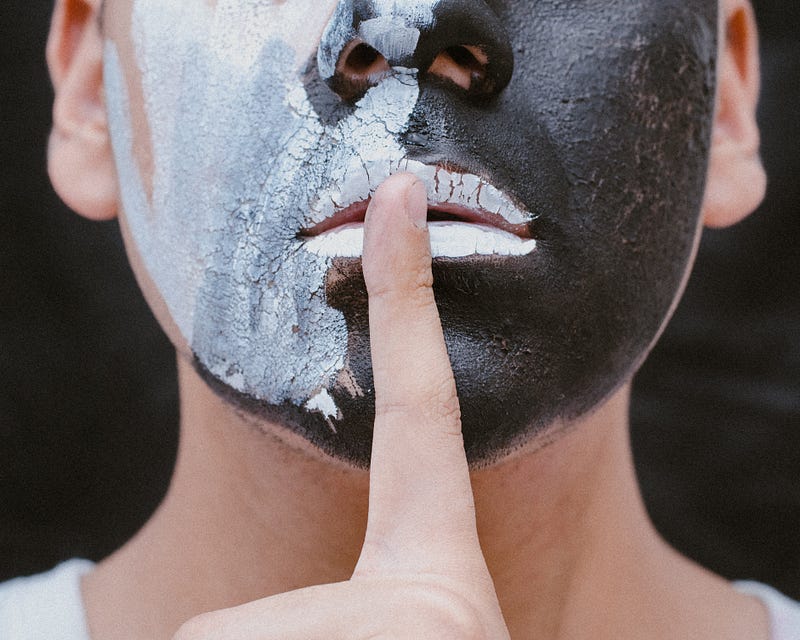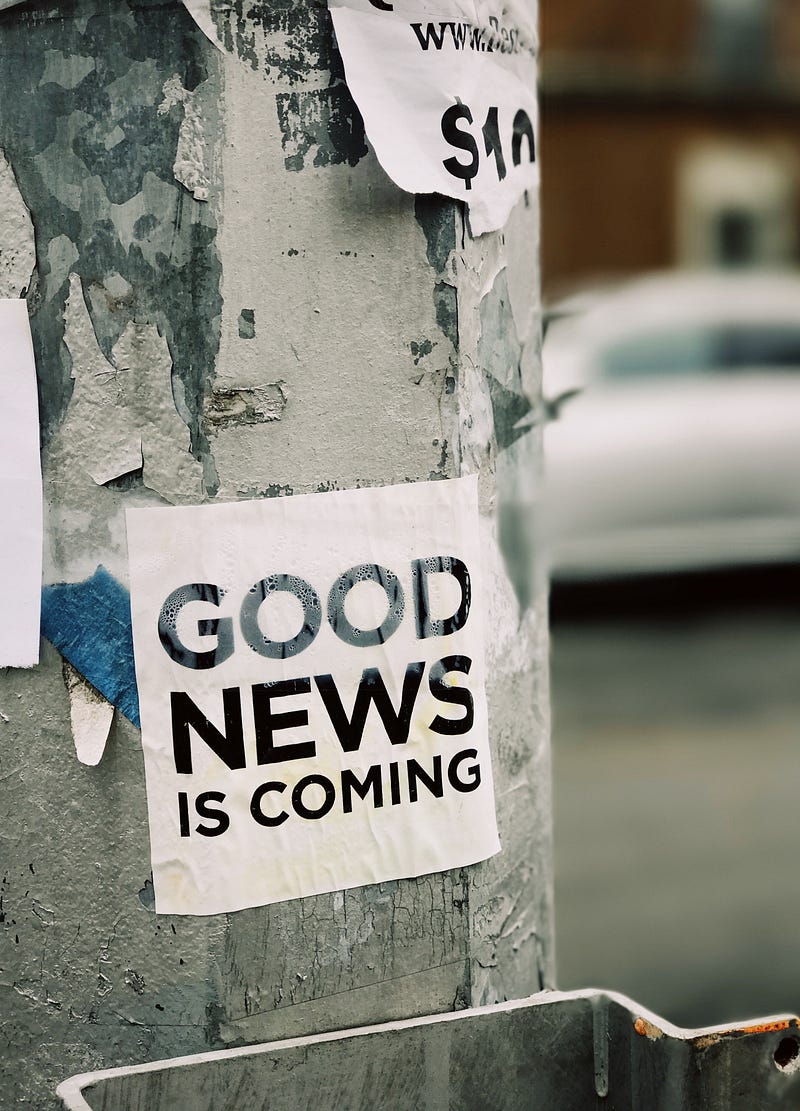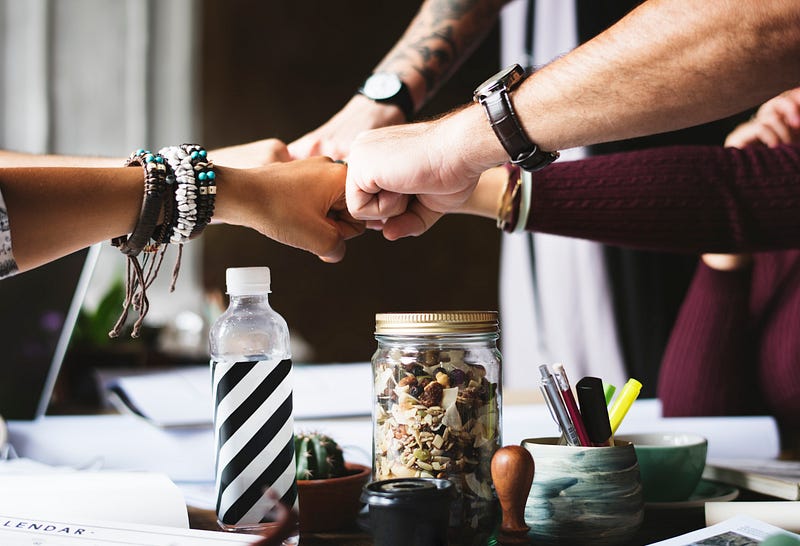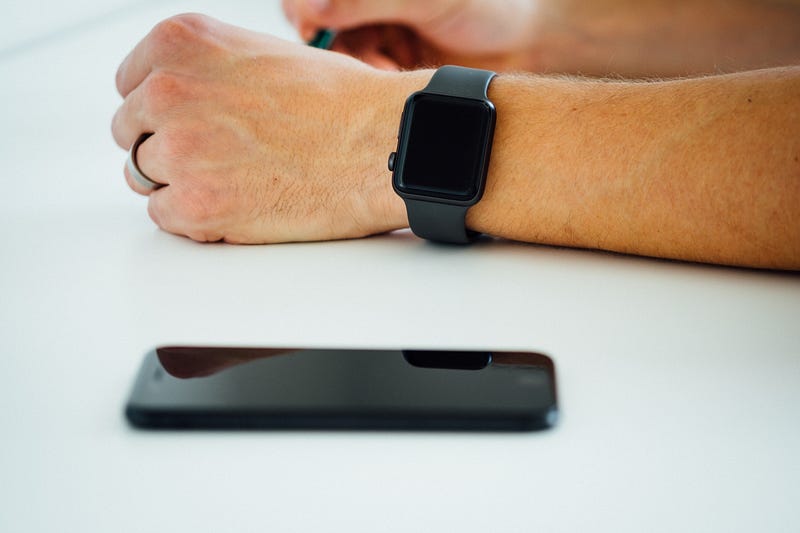There are roughly 240 million adults in the United States of America, and an estimated 3–4% of them are either sociopaths or psychopaths.
Don’t write off that low percentage, though, because 4% of the American adult population is 9.6 million people. Yes, that’s right, roughly 9.6 million Americans have antisocial personality disorder, imbuing them with traits such as:
- Lack of empathy, guilt, conscience or remorse
- Shallow experiences of feelings or emotions
- Impulsivity and a weak ability to defer gratification and control behavior
- Superficial charm and glibness
- Irresponsibility and a failure to accept responsibility for their actions
- A grandiose sense of their own worth
Seeing so many people in America having such a list of traits and characteristics got me thinking about two things:
- Certainly many, if not most, of these people have access to the internet.
- Certainly many, if not most, of these people are aligned with a political ideology — not necessarily for the benefit of the people represented by the political group, but because of indoctrination and the fact that the success of their chosen political party would provide them with personal, selfish benefits.
This suggests that we may have as many as 10 million Americans (not to mention millions more from other countries around the world — I’m looking at you Russia) creating content on social media in favor of a political ideology, who are biologically wired to 1) believe they’re better than others, 2) are physically incapable of seeing situations from the perspectives of others, and 3) don’t care if their actions hurt people.
As you can imagine, such sociopathic tendencies are a direct threat to a stable society based on cooperation and community values: cooperation coming from the latin cooperari, meaning “to work together,” and community coming from the latin communis, meaning “shared in common.” Naturally, working together for shared progress is going to be difficult when roughly 10 million people are incapable of empathy and emotions, and are driven solely by selfishness.
In the past, this behavior might have have been disparate and kept in check by the buffer of a surrounding empathetic community, but with the internet, these 10 million people are able to spread their lies, deceit, manipulation, and apathetic hatred and trolling far and wide under the guise of anonymity.
And the more rational folk amongst us even help the content go viral, because it often sparks our outrage and fear, and so we share the content to showcase and placate our sense of virtue or frustration. These bits of “fake news” and hateful propaganda then become so dominant that they bleed into reality and began to impact our daily conversations around the water-coolers and at the pubs.
The result: a socio-political climate where everyone believes the world is burning. And it’s not surprising, because such a belief is a self-fulfilling prophecy: hate crimes and school shootings are taking place at higher rates than ever before, racism and sexism and xenophobia of all kinds seem to have suddenly had a resurgence, and a civil war between those who represent the “left” and those who represent the “right” isn’t all that far from possible thanks to the continued radicalization of our society by this viral propaganda online.
Just last week, my own city of Portland, OR saw a battle erupt as the left-wing Antifa (Anti-fascists) and the right-wing Patriot Prayer (a group leaning towards pro-Trump and white nationalism) broke into violent combat in the downtown streets.
And we all know it’s not any better online where this content is being shared.
It seems virtually impossible to be on the internet these days without immediately stumbling into some controversy driven by radicalist cliches: Fascists, Misogynist, and Racist Nazi’s against Social Justice Warriors, Snowflakes, and Postmodern Marxist Communists.
And yet, I don’t think the bulk of people in America want this violent clashing; nor do I think the majority are people in America are involved in it.
If that was the case, then the percentage of people with antisocial personality disorder would likely be much higher, right? Or we simply wouldn’t have the disorder to begin with (because why create a disorder if it’s the norm — get what I’m saying?).
And though it’s anecdotal, I certainly see this in my personal life. From my conservative christian family members in rural southern Ohio to those close relationships I have with atheist liberals in Portland, most people I talk to desperately want more kind conversation and dialogue, some form of compromise and unity. As could be expected, they simply want peace and progress.
My liberal friends don’t hate every white republican christian man, and those from my Ohio roots don’t hate every gay black female. Those on both sides are far more afraid of not having a job and of not being able to afford hospital visits. They’re mostly concerned that these struggles they face every day–thanks to a government run by corporations–means that they’ll eventually meet a lonely and painful end.
I don’t think most of us are trying to hate anyone; I think we’re just trying to survive. And I think for most of us just trying to survive, we’ve discovered that surviving is way more worthwhile if we live in a safe, non-violent world with kind people around us.
Unfortunately, the noise of the radicals has seemingly convinced many of us of the opposite. Even those kind amongst us are having trouble believing that the majority of people are willing and wanting to work together. This isn’t a surprise, though, because the peaceful ones aren’t the vocal ones. They’re not the ones online making essay-long facebook posts and sharing screenshots of viral twitter posts that demonize someone based on their political party, gender, beliefs, race, etc.

But why — why are the unifiers and lovers so quiet? Why are they relinquishing the microphone to the psychopaths and the radicals?
My guess is because they’re tired of being attacked by the radicals.
To stand in the middle and ask for unity now makes you a “sympathizer” or a “traitor.” If I tell someone I think a Trump voter should be listened to and talked to respectfully, I’m called a fascists — or at the very least told my passivity is going be what allows a new Hitler to rise to power. If I tell a Trump supporter to consider the very real negative impacts affecting women and people of color in my life, I’m called an overly-sensitive, communist snowflake.
And most people don’t want to be in that position of judgement where they’re made into a social pariah. It’s painful and exhausting. They don’t want to isolate themselves from both of the radicals camps, either, because they don’t want to be in the middle, lonely and without help, when the bullets start flying. They think it’s better to just stay quiet and passively acquiesce rather than be heard.
And that’s the problem. We’ve let this small group of radicals on the ends of the social spectrum silence the best amongst us. Or worse, they lure those fearful moderates in the middle into their lie and radicalize them through the threat of verbal, and sometimes even physical, violence. (A friend here in Oregon was punched for not immediately admitting that Obama was the best president ever. She voted for Obama…)
And as a result, those rational amongst us — those who are practicing empathy to the best of our ability and who are genuinely hoping for some kind of progressive reconciliation — are starting to think these radicals are actually representative of the whole spectrum. And those of us who are on the verge of radicilism ourselves (because we’re exhausted and we’re thinking the shit-show we’re currently in means we have to choose sides) just end up joining one of the radical groups, thus becoming just another intolerable mouthpiece shouting the cliches for whatever ideology we decided to sacrifice our integrity for.
We’re now allowing our minds to lazily accept these two radical groups on the edges of our political parties as the bulk of society, thinking that these radical sociopaths and psychopaths and their newly-recruited and terrified messengers are literally the only two options we have.
We’ve allowed ourselves to be drawn into this ridiculous belief that these 10 million psycho/sociopaths are the norm, because they’re the loudest ones dominating the conversation, shooting ridiculous youtube videos, making biased and childish blog posts, and sharing blatantly wrong and pathetically biased media online. And in our terrified and reactionary carelessness, we pass along their message — because even though we know it’s kind of batshit crazy, at least it signifies that we’ve joined one of the two teams and helps us get out a bit of the outrage we’re feeling.
But remember: there are 230 million other adult Americans who are simply going about their day-to-day lives, doing their best to survive. And for the most part, they don’t want to hurt or hate anyone. And sure, some of these people may still be radicals even if they’re not psychopaths, but honestly: these people are simply afraid, and they’d likely chill out and help us make progress together if we’d stop letting the loud radical minority scare the shit out of them.
Because that’s whats happening.
We can clearly see how overwhelmed we are by radical and fake news and how it’s giving us an inaccurate perception of reality thanks to a recent study done by a team at MIT. They showed that “it took the truth about six times as long as falsehood to reach 1,500 people.”(1)
Covering this study, The Atlantic writes: By every common metric, falsehood consistently dominates the truth on Twitter…Fake news and false rumors reach more people, penetrate deeper into the social network, and spread much faster than accurate stories.(2)
When prompted for the cause of this, Soroush Vosoughi, an MIT PhD student studying fake news said: “It might have something to do with human nature.”(2)
Other scientists quickly agreed: “We must redesign our information ecosystem in the 21st century.”(3)
So what can we, the 230 million people who want actual progress and reconciliation, actually do against this challenge?

Step 1: Have the decency to act as a filter for bullshit.
Vosoughi found through his studies that fact checking sites like factcheck.org, hoax-slayer.com, politifact.com, snopes.org, truthorfiction.com, and urbanlegends.about.com agreed on which news stories were true roughly 95 percent of the time.
Come on, ya’ll! 95 PERCENT! How often are things in life that much in agreement? That’s a damn good sign that the things they agree on are probably the truth, or as damn close to it as any of us can expect to get.
So when that story comes your way, and you’re just thinking: “No F*cking Way! God I hate this country. I can’t believe this is happening! Not again! F*cking [xenophobic slur]. How could this be!? God I hate these people!” etc etc…Then maybe take a minute and first check out some of these fact checking sites. For one thing: it might be a blatant lie. Based on what we know so far, it probably is. Secondly, it will give you a chance to calm the hell down. Which is good, because you do stupid things when you’re not calm.
Okay, so you’ve checked sources and took a few deep breathes, and you’re still going to share the content. Okay, just make sure you actually READ the damn thing. Don’t just read the headline! If you can’t add some personal reflection with the content you’re about to share (maybe a question it sparked, a concern you have, a request for clarification from others based on something that seemed unclear, etc), then don’t share it, because that means it didn’t provoke meaningful growth for you, it just reinforced a bias you already had. That’s what we call arrogance and virtue-signaling, and both annoy the living shit out of people.
Step 2: Use The Skills That Make You A Special Little Animal
Throughout history, new demands are always placed on a species. If the species rises to the challenge, they adapt and evolve and thrive into the future. If they are unable to adapt, they die.
Well, folks, this is our challenge.
We must understand that we are now in a time where humanity engineers its own evolution. Our DNA can’t keep up with silicon valley — it’s truly that simple. And that means that we have to teach ourselves how to adapt to our environment — we can’t wait for DNA to make us less shitty people. That means using the two main features that separate us from the rest of the animal kingdom: our imagination and our tool-making.

Option A) Find Ways to Make A Ulysses Pact with Yourself and Your Friends
Now, our imagination is indicative of one skill in particular: our ability to envision a future that we can then plan and prepare for. In this way, we can make something called a Ulysses Pact.
Let’s look at quick sailing story from the Ancient Greeks that explains what a Ulysses Pact is and how it relates to preparing for the future:
The term [Ulysses Pact] refers to the pact that Ulysses (Greek name Ὀδυσσεύς, Odysseus) made with his men as they approached the Sirens. Ulysses wanted to hear the Sirens’ song although he knew that doing so would render him incapable of rational thought. He put wax in his men’s ears so that they could not hear, and had them tie him to the mast so that he could not jump into the sea. He ordered them not to change course under any circumstances, and to keep their swords upon him and to attack him if he should break free of his bonds.
Upon hearing the Sirens’ song, Ulysses was driven temporarily insane and struggled with all of his might to break free so that he might join the Sirens, which would have meant his death.(4)
Okay, so for our purposes: the Sirens in this case are the radicals, sociopaths, and psychopaths, and they’re the ones trying to “render you incapable to rational thought.”
And the men who compose Ulysses’ ship crew: that’s your close friends and your community — both online and off.
The point? The point is that we’re gonna have moments where we get pissed off, where the day just hasn’t gone how we want, where we’re tired of bad news, and that little bit of feel-good dopamine we get for punishing the “others”(those people different than us) by berating them online is exactly what we’re looking for to justify our shitty day. And with how turbulent things are right now, these days are gonna happen more and more often. (As a note, yes, neuroscience has shown us that we get dopamine-pleasure when we feel that we’ve punished someone for a “norm” violation, or for acting in a way that isn’t socially acceptable. When we get dopamine, we get addicted, too, so yes — we’re addicted to punishing each other for being different than us.)
So what we can do is make our own Ulysses Pact before we hear the Siren’s song and the bloodrage kicks in and causes us to add fuel to the radicals’ fire.
One of the easiest ways to do that is to simply have conversations with your friends when your mind is calm and at ease, and have the courage to ask for honesty from them. Make it an oath, a crucial part of your relationship. Decide together that your friendship is strong enough for the kind of honesty that tells the other: “Hey, if I’m being a xenophobic, impulsive, close-minded radical and about to spout off some bullshit, whether it’s online or at the pub, call me out on it. I don’t want to be that person, because I know it hurts all of us, including myself. Also, it makes me look like a tool that nobody wants to be friends with, and I’d rather not die alone.”
And like Ulysses told his men, you tell your friends to “keep their swords upon [you] and to attack [you] if [you] should break free of [your] bonds.” Under no circumstance shall they let you be a radical pawn.
As touched on before, one of the biggest ways we’re slipping into catastrophe is that we’re afraid to speak our truth because we’re afraid our peers will crucify us for it. But if you make this pact beforehand, your peers know they can safely call you out for slipping into “radical” mode. And if they don’t want to make this pact with you, if they personally want to become a radical and they want you to do the same, find some new friends. These are dangerous individuals who won’t serve your life in a healthy way, because they value destructive lies more than cultivating a meaningful and honest relationship.

Option B) Invent Something Badass and Start a Trend
If our tool-making and engineering got us into this mess (creating a platform that let all of the world’s psychopaths anonymously take over the global conversation at the same time), then perhaps our engineering can save us.
Maybe Silicon Valley can help clean up the mess it created. Or maybe you can — hell, creating a new app or gadget has never been easier for the average Jane/Joe.
Here, I’ll kickstart the brainstorm session with my own idea and one of you can go make the app and get rich off it.
What if we used one of the health/fitness bracelets with sensors that link via bluetooth to our computers and phones and we made an app that linked up to it. This app could be simple: just block our ability to send texts, share articles, and tweet when our emotions are out of balance — when our fear and anger has us in its society-threatening grasp. That way we can’t add fuel to the fire when we hear the sirens song.
And we can make it totally voluntary, too, but also make it a public symbol of our personal courage and willingness to sort psychotic bullshit from meaningful and objective truth. Talk about positive branding!
Hell, maybe it’d spark more public conversations and friendships, too, because if we didn’t have to fear some radical and cliche bullshit small talk, then maybe we’d feel more comfortable engaging strangers. Imagine: You see someone with a bracelet, and now you know they’re a person who wants to engage in a fruitful and respectful conversation. New friends, Yay! (Make a Ulysses Pact with them!)
Listen, I don’t know if this is a good invention or not. It’s just a proof of concept. And by that I mean it’s proof that if we pull our heads out of asses we can come up with new ideas how to handle this existential and evolutionary threat.
It’s proof that with awareness through articles like this, through reflection and ingenuity and courage, we can build up defenses that will allow us to avoid empowering the 10 million people in America who are radicalizing our country. Those 10 million who are stopping the other 230 million Americans from working together to save kids from school shootings, to stop children from being put in cages, to grow our economy and ensure quality healthcare.
If we are to survive this time of feral animosity, our species (each and every one of us) have to learn to how to step back from our initial outrage and fear so that we don’t fall prey to the bad actors amongst us.
Take a breathe and create habits and routines and relationships that will empower your courage and willpower. Find ways to cultivate your patience, mindfulness, and objectivity. At the very least, spend a few more minutes doing your research before sharing that article and berating someone just because they have a different opinion than you.
Because if you don’t:
We’re going to keep amplifying this feedback loop of hostility and divisiveness, forcing our economy, healthcare, and education to collapse because of our inability to cooperate long enough to stand up to the 3–4% of CEOs and Psychos happily destroying our country for their own greed and pleasure.
[Note: I understand that a disorder is not a choice. But we can’t avoid a problem just because it has a cause that grates our compassion. Furthermore, we know that a single gene is often responsible for psychopathy/sociopathy, and it usually only activates if that person has an adverse childhood. But if we can bring to fruition the goals of this article, then fewer children will grow up in adverse conditions, and therefore fewer people will develop antisocial personality disorder. It’s a win-win for everyone.]






